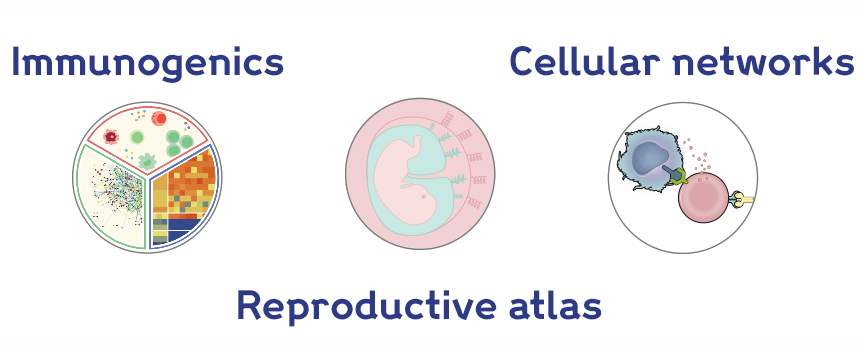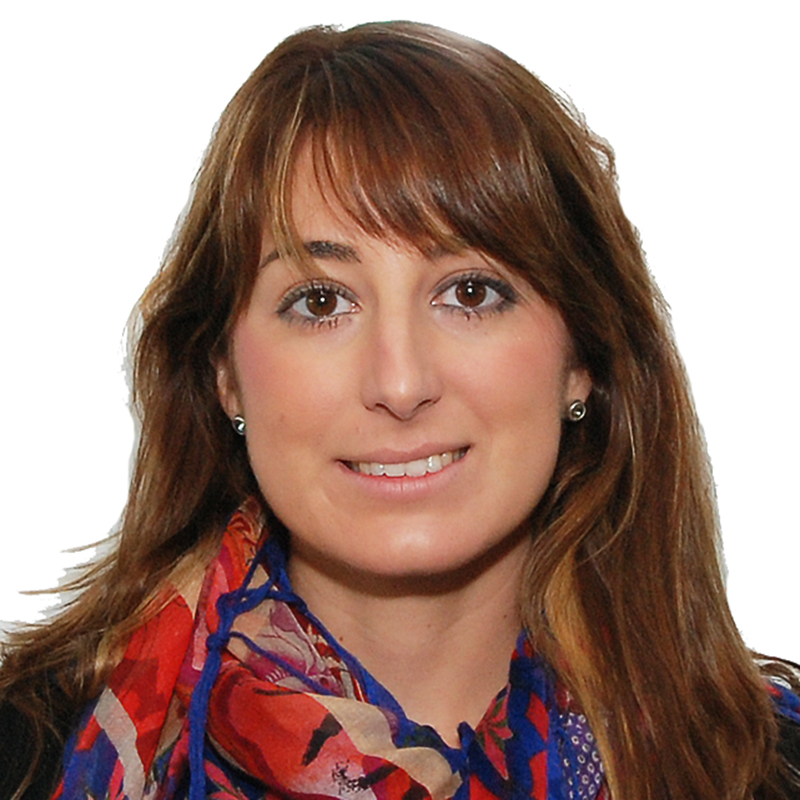Roser Vento-Tormo leads single-cell research team at the Sanger Institute

The Wellcome Sanger Institute is delighted that Roser Vento-Tormo has become its latest member of Faculty in March 2018. Her research team will boost the work of the Cellular Genetics programme as it explores the cellular makeup of, and interactions between, the individual cells that make up a human body.

Roser’s team focuses on how cells develop, function and organise themselves within the human female reproductive system. In addition, the group explores how the system interacts with a developing foetus. The resulting reproductive cellular atlas will provide an invaluable foundation for understanding how the womb supports the implantation and growth of a baby, and for identifying the underlying causes of infertility, placental defects, pre-eclampsia and miscarriage.
The group’s work may help to resolve one of biology’s more puzzling conundrums. Our immune systems identify and destroy cells that are different to us. Yet a baby’s placenta is able to implant into a mother’s womb wall without triggering a catastrophic immune response. Discovering how the baby’s cells quieten the mother’s immune system may deliver insights into how our body’s tissue cells communicate with our immune cells, and what happens when this goes wrong. Such knowledge could point to new therapies for autoimmune diseases, miscarriage and pre-eclampsia.
“Mothers have a fully functioning immune system that fights off invaders by identifying and attacking cells that are “other”. Yet a developing baby, whose cells are different to its mother, is able to thrive in the womb. How does this happen? What special signals are being passed between the baby’s cells and those of the mother to allow them to coexist peacefully? The answers might help us calm diseases caused by an over-active immune system.”
Roser Vento-Tormo Faculty member of the Cellular Genetics programme, Wellcome Sanger Institute
The team will also explore how a placenta is formed and how the cells talk to each other to allow it to function. Understanding how this organ, and the signalling pathways and responses involved, could help to unlock the biological underpinnings of diseases associated with placental defects, such as pre-eclampsia, foetal growth restriction and miscarriage.
“The intricate cellular communication taking place between a baby’s placenta and its mother’s womb wall is one of the most mysterious, and inaccessible, areas of immune research. It is only due to advances in imaging, single cell technologies, and molecular profiling that we can start to contemplate studying this finely balanced cellular ecosystem. I am excited to start working with the Sanger Institute’s researchers, and high-throughput cellular generation and sequencing teams to explore how we can start to scrutinise this process cell by cell.”
Roser Vento-Tormo whose research team is creating a reproductive cell atlas at the Wellcome Sanger Institute
Roser’s team is working closely with fellow Cellular Genetics programme researchers and teams from other programmes to apply cutting-edge genomics and computational approaches. In particular, the group employs single-cell techniques, 3D cellular mapping, imaging techniques and transcriptome profiling.
Roser’s work will contribute to the Human Cell Atlas initiative, in collaboration with Sarah Teichmann’s and Sam Behjati’s research groups. She is also working closely with the Institute’s cancer researchers to identify the mutations that arise in the female reproductive tract over time, and how their accumulation may lead to cancer. Another area of collaboration is with the Institute’s computational teams to analyse vast volumes of molecular data from her single-cell profiling experiments. While her work to map the orientation and communication between cells over time draws on the skills of fellow faculty Omer Bayraktar and Gavin Wright.
“Roser’s appointment is richly deserved. Her research has identified the cells present at the intersection between a baby’s place and the mother’s womb, and how they talk to each other to co-exist peacefully. Her insights are freely available to all in the CellPhoneDB resource she has created, which will power research studies for years to come. We look forward to working with her to combine real-world experiments with computational approaches to create an invaluable encyclopaedia of cell signalling pathways in the human body.”
Sarah Teichmann Head of the Cellular Genetics Programme at the Wellcome Sanger Institute and Co-Chair of the Human Cell Atlas Organising Committee
Postdoctoral, computational, wet-lab and PhD student positions are available in Roser’s team. For further information please read here: Advanced Research Assistant, Postdoctoral Fellow and Senior Bioinformatician.
More information
Selected websites
Wellcome Sanger Institute
The Wellcome Sanger Institute is one of the world’s leading genome centres.
Through its ability to conduct research at scale, it is able to engage in bold and long-term exploratory projects that are designed to influence and empower medical science globally. Institute research findings, generated through its own research programmes and through its leading role in international consortia, are being used to develop new diagnostics and treatments for human disease.
Find out more at www.sanger.ac.uk or follow @sangerinstitute on Twitter, Facebook, LinkedIn and on our Blog.
Wellcome
Wellcome exists to improve health for everyone by helping great ideas to thrive. We’re a global charitable foundation, both politically and financially independent. We support scientists and researchers, take on big problems, fuel imaginations and spark debate.


